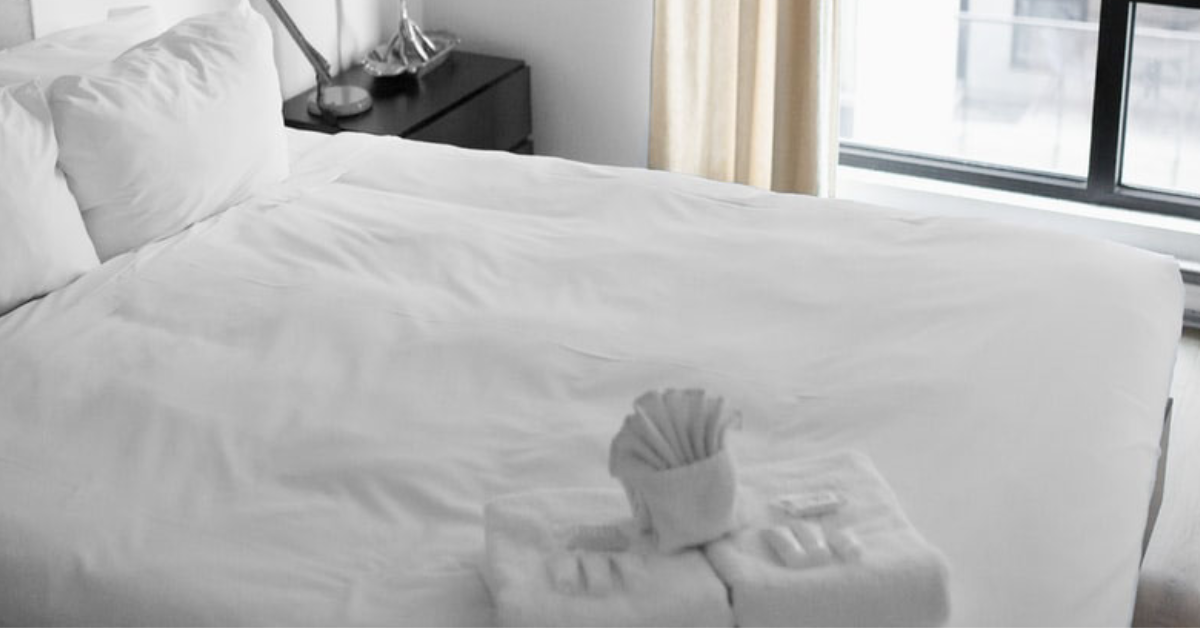Accountability is a two-way street.
“If you wish to reuse your towels, hang them up. Thanks for helping us conserve water and save our planet.”
Have you seen a similar notice at a hotel you’ve stayed at?
As a road warrior, it seems that most upscale hotels I patronize offer this service. And… I have a problem with this request! [wait for it]
Yes, I do appreciate their policy and I support any actions that conserve water and energy. My heartburn has to do with the amount of accountability of the property’s employees may or may not have. I will explain.
Reusing Dirty Hotel Towels
If I am staying for more than one night, I place the bath towels on the rack as suggested because I believe in using a towel more than once. Often (over 80% of the time), I find that my used bath towels are replaced with clean ones! The used towels are not ‘recycled.’
When this happens, I wonder:
Why do hotel employees ignore their employer’s wishes and policies?
Is the leadership unaware of this non-compliance?
Are the employees properly supervised?
Where are the quality checks?
Does the leadership realize that their ‘commitment to the planet’ is hollow because their staff are not living up to the promise?
Do they realize regular customers will stop their conservation efforts because the hotel’s environmental concerns seem bogus?
AND
What other policies are hotel employees choosing to ignore – replacing used glassware and coffee mugs? Disinfecting the toilet? Safety issues?
By now you might be thinking, ‘Ron, the employees probably took your used towels, folded, and then placed them where the clean towels go.’ I have thought that, yet I worry about that too.
A hotel room typically has three bath towels. Let us assume that I use two the first day and leave them for reuse. These are folded and now resemble new ones. The next day, when I grab a towel randomly, there are two ‘dirty’ towels posing as new and I cannot tell the difference.
In this instance I wonder:
When I check out, are all towels placed in the laundry?
Will the next guest get a used towel? What prevents this from happening?
How do I know that I am not using a recycled towel used by the previous guest in this room?
When a guest checks out, if they toss all towels into the laundry – even the clean unused ones to prevent this reuse issue – does that not lead to a waste of water and energy?
Okay, that is enough about my loss of sleep over unclean hotel towels. Let us take a deep dive into what you need to learn about Accountability.
Why the Level of Accountability Can Foster or Damage Success
Accountability is a requirement for success in any endeavor.
The hotel I stay at wants to be successful and profitable. To do this, they intend to:
- Keep me safe and comfortable.
- Give me a great experience.
- Do the little things so that I stay here again.
- Do the big things so that I recommend the property to friends.
- Enhance their brand and reputation.
- Hire employees who care about their work.
- And of course, find reasonable ways to reduce their costs, while not lowering customer service.
To accomplish all this, the hotel’s leaders MUST rely on all their employees to carry out these intentions. And everyone, including leadership, must practice accountability in everything they do.
What does accountable behavior look like at a hotel where you choose to be a guest?
Accountable Behaviors Defined
You have a right to expect:
- Your credit card and personal info stays secure and is not misused.
- The food you eat is not contaminated or past its used-by date.
- Employees check for faulty electrical outlets and wiring.
- The air you breathe and the water you use are clean.
- The driver of the hotel shuttle is sober and a drives safely.
- The cleaning staff stays at home when feeling sick.
- Your room is adequately cleaned and disinfected.
- Towels, blankets, sheets are washed before you arrive.
- Employees are proactively looking for and eradicating bedbugs.
- Employees are not stealing from you.
- The staff does not overcharge or stick you with unexpected fees.
- There are no hidden cameras or recording devices in the sleeping and meeting rooms.
I could go on, but you get the picture I am drawing. You would NOT STAY at a hotel where employees and suppliers lacked accountability. To be accountable is their obligation to you!
Your Accountable Behaviors Defined
But wait… you have an obligation to the hotel! Their management and employees expect you be accountable in your actions such as not:
- Stealing the television, microwave, towels, etc.
- Using a fraudulent credit card.
- Charging your meal or bar tab to someone else’s room.
- Abusing or abasing hotel staff.
- Intentionally damaging hotel property.
- Spreading your cold or the flu to employees and guests.
- Playing loud music at 2:00 am.
- Demanding a refund or price reduction when you are not entitled to them.
- Using their pool or hot tub if you have intestinal problems.
I could add more examples here as well, but I know when to stop.
By now I hope you have realized a key truism of accountability, which is Principle #3:
For accountable behaviors, you cannot ask for them if you are unwilling to engage in them.
Imagine staying at a hotel where management does not care if their employees engage in the Accountable Behaviors, which I list above.
Imagine staying at a hotel where management allows its guests to engage in my second list of Behaviors. Even if you are not the bad actor, the guests who are will negatively impact you and your enjoyment.
In both scenarios, after one night there you would NEVER choose that hotel again!
Accountability is not a one-way street. It must be an equal partnership for success to have a chance.
Accountable Behaviors Always Start with You
As a leader you cannot demand employees become more accountable until you examine your own behaviors and culpability.
Why? People who lack integrity always convey this message through their words and behaviors: “Do as I say. Ignore what I do.”
Therefore, if you want your employees to show more accountability to standards and your expectations for success factors, such as:
- Safe Practices
- Product Quality
- Customer Service
- Accuracy
- Transparency
- Data Security
…you must first identify the actions you take and examine the words you speak.
Are you demonstrating greater accountability?
Do you ALWAYS model the behaviors that you want from others?
All humans universally have a character flaw. We demand that others be fully accountable to us, yet we give ourselves excuses to be less than accountable to others. We do not tolerate their bad behavior, yet we want a pass on ours. As a leader, you must fix this flaw in yourself and in your people.
Remember This
Success cannot take place when the practice of accountability is a one-way street.
Accountability shows in big things such as hotel safety, food purity, and data security. Accountability (and the lack of it) also shows up in the simple act of changing a guest’s towels.
Don’t get me started on hotel blankets and bedcovers and pillows and…

